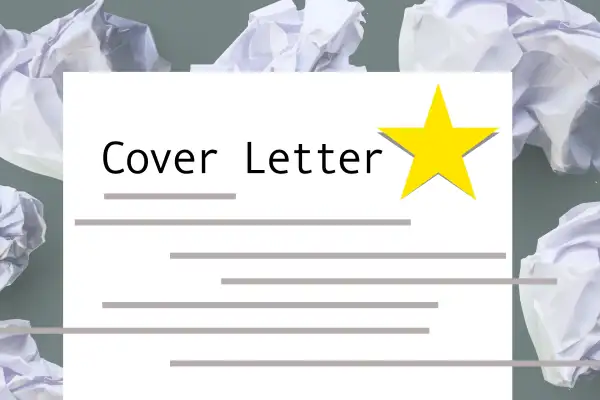Is Your Cover Letter Boring? Here’s the 1 Thing You Need to Spice It Up, According to an HR Manager

Most job seekers mash together a cover letter as an afterthought.
After all, the key information is all in the resume. So, they begin with something like this: “With great interest, I noted your opening for a software engineer. Please consider me an applicant for this position.”
No no no.
You’re stating the obvious. You wouldn’t be submitting a resume if you weren’t interested. And how many times do you think a hiring manager has read this line?
Cover letters are not afterthoughts. They are the first impression a hiring manager gets of a candidate. A boring, ho-hum letter could mean a boring ho-hum person.
As Veronica Wright, career counselor for Resumes Centre, puts it: “Many of our clients are making the same mistakes with their cover letters. They either focus on how an opening matches their career desires, or the letter is filled with trite verbiage. Nothing stands out, and a hiring manager is not interested in a candidate’s career goals at that point.”
As an HR manager for many years, I can tell you that cover letters do matter. I look for enthusiasm. And I want to see at least one specific accomplishment that has provided value to a current or past employer. If you can do this, and do it in such a way as to not sound self-promotional, then I am impressed.
The One Thing Your Cover Letter Needs and How to Do It
What you need is a unique value proposition that you bring to the table. And you need a unique way of stating that value proposition so that you stand out and are memorable.
What is a value proposition?
It is a statement of what you possess that will be of value to the organization. It is what many in the business of resume and cover letter creation call a “hook.”
So, What’s Your “Hook?”
You need to do some serious thinking about what value you can bring to a company. Make a list of your accomplishments that would relate to this new position. Once you have that list, pick one that stands out and that is most directly related to this opening.
Suppose you are a software engineer who has developed a live chat feature using a combination of bots and live agents for enhanced customer service. This is a cool accomplishment and a major benefit to that organization, which is exactly what a prospective employer wants to hear.
How Will You Present that Hook?
You should remember from your school days that a “hook” is what captures your reader’s attention and makes them want to read on. In those days of academic writing, you were told to begin your piece with a startling statistic, a quote, an anecdote, etc. Journalists also know the value of a hook — they use them as subheadings underneath a captivating headline.
You will not be writing headlines or subtitles. But you will need a hook very early on in your cover letter — a hook that directly relates to the position for which you are applying. Usually, that hook is a major accomplishment that will cause the reader to “sit up and take notice.”
Here’s an example of a good hook:
“Without outstanding customer service, a company will lose loyalty and repeat business. And yet that function cannot break the budget. With that in mind, I developed a chat program that incorporated bots and artificial intelligence. Now, bots respond to the repetitive and mundane questions and issues, leaving the more complex for live agents. This reduced the manpower needs of that department by 20%.”
Here’s an example of that same hook, crafted in a bad way:
“I am proud of my latest major accomplishment – developing a live chat feature for customer service that included chatbots. I personally designed the algorithms and incorporated artificial intelligence into the program.”
Do you see the difference? The emphasis in the first hook was beneficial to the company; emphasis in the second one is all on “I.” And the first one presents a compelling statistic — a 20% savings to the company.
A Few Other Reminders
When writing a cover letter, watch your format — you want the letter to be easy to read.
Using bullet points can be a good idea, but, in any case, make your paragraphs short. “One big error I always see,” says Sally Schwartz, Career Advisor at Resumes Expert, “is a cover letter that is just a wall of text. It’s a huge turnoff right from the start.”
Always use statistical evidence of any accomplishment you speak to in a cover letter.
Finally, end your letter with a solid concluding statement, something like, “I look forward to the chance to have further discussion with you.” Now you've got their attention: hook, line, and sinker.